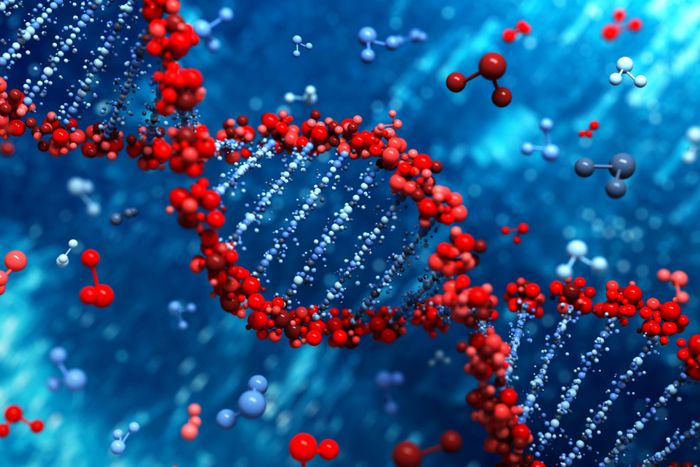Benefits of Genetic Engineering in Humans
Genetic engineering in humans has emerged as a revolutionary field of science, offering immense potential for improving the quality of human life. In this article, we will explore the numerous benefits associated with genetic engineering and its impact on various aspects of human health and well-being.
Enhanced Disease Prevention and Treatment
One of the most significant advantages of genetic engineering in humans is the potential to prevent and treat a wide range of diseases. By manipulating the genetic material, scientists can identify and modify genes responsible for inherited disorders, such as cystic fibrosis or sickle cell anemia. This allows for the development of targeted therapies that can effectively combat these conditions.
Improved Drug Efficiency
Genetic engineering also plays a crucial role in enhancing the efficiency of drug development and delivery. Through genetic modifications, scientists can create more accurate disease models, enabling the development of drugs that specifically target the underlying causes of various illnesses. This personalized approach to medicine holds great promise for improving treatment outcomes and minimizing adverse side effects.
Increased Agricultural Productivity
Genetic engineering techniques have not only revolutionized human health but also have the potential to address global food security challenges. By modifying the genetic makeup of crops, scientists can enhance their resistance to pests, diseases, and adverse environmental conditions. This results in increased agricultural productivity, ensuring a stable and sufficient food supply for the growing global population.
Environmental Sustainability
Another notable benefit of genetic engineering in humans is its potential to contribute to environmental sustainability. By developing genetically modified organisms (GMOs) that are more resilient and adaptable, scientists can help mitigate the impact of climate change and reduce the use of harmful pesticides and herbicides. These GMOs can also be engineered to produce biofuels, offering a cleaner and renewable energy source.
Improved Quality of Life
Genetic engineering has the potential to significantly improve the quality of life for individuals affected by genetic disorders. By correcting or modifying faulty genes, scientists can offer hope to patients and their families, alleviating the burden of debilitating conditions. This technology also opens up possibilities for enhancing human capabilities, such as improving memory or increasing resistance to age-related degeneration.
Ethical Considerations
While the benefits of genetic engineering are undeniable, it is crucial to address the ethical considerations associated with this field. The potential for misuse or unintended consequences necessitates careful regulation and ongoing ethical discussions. Striking a balance between scientific progress and ethical responsibility is crucial to ensure the responsible and beneficial application of genetic engineering in humans.

Genetic engineering in humans holds immense potential for transforming healthcare, agriculture, and environmental sustainability. The benefits it offers, such as enhanced disease prevention and treatment, improved drug efficiency, increased agricultural productivity, environmental sustainability, and improved quality of life, are substantial. However, it is essential to approach this field with caution, considering the ethical implications and ensuring responsible use. As genetic engineering continues to advance, it is crucial to foster a balanced dialogue that promotes scientific progress while upholding ethical standards.
Frequently Asked Questions – Benefits of Genetic Engineering in Humans
1. What is genetic engineering?
Genetic engineering is the manipulation of an organism’s genes using biotechnology techniques to introduce new traits or modify existing ones.
2. How can genetic engineering benefit humans?
Genetic engineering offers several potential benefits for humans, including the ability to cure genetic diseases, enhance human capabilities, and improve agricultural productivity.
3. Can genetic engineering help in curing genetic diseases?
Yes, genetic engineering holds promise for curing genetic diseases by correcting or replacing faulty genes responsible for the condition.
4. Are there any ethical concerns associated with genetic engineering in humans?
Yes, ethical concerns exist regarding the potential misuse of genetic engineering, such as creating “designer babies” or widening the gap between genetically enhanced individuals and the rest of society.
5. What are some examples of genetic engineering in medicine?
Examples of genetic engineering in medicine include the production of insulin using genetically modified bacteria and the development of gene therapies to treat diseases like cystic fibrosis and cancer.
6. Can genetic engineering enhance human capabilities?
Genetic engineering has the potential to enhance human capabilities by improving traits such as intelligence, strength, or disease resistance, although this raises ethical concerns and questions about fairness.
7. How does genetic engineering contribute to agriculture?
Genetic engineering in agriculture has led to the development of genetically modified crops that offer benefits such as increased yield, resistance to pests or diseases, and improved nutritional content.
8. Is genetic engineering safe for humans?
Genetic engineering techniques undergo rigorous testing and regulation to ensure safety. However, ongoing research and monitoring are essential to address any potential risks or unforeseen consequences.
9. Can genetic engineering be used to create personalized medicine?
Yes, genetic engineering can play a role in creating personalized medicine by tailoring treatments to an individual’s genetic profile, increasing effectiveness, and reducing side effects.
10. What are the prospects of genetic engineering in humans?
The prospects of genetic engineering in humans are vast, including advancements in disease prevention, targeted therapies, and potential enhancements of human traits, but careful consideration of ethical implications is crucial.




